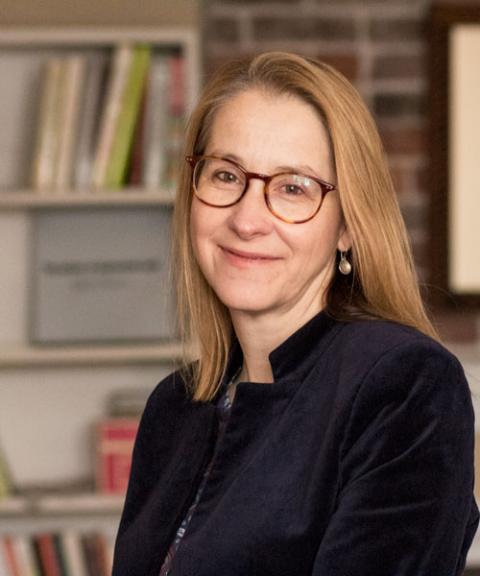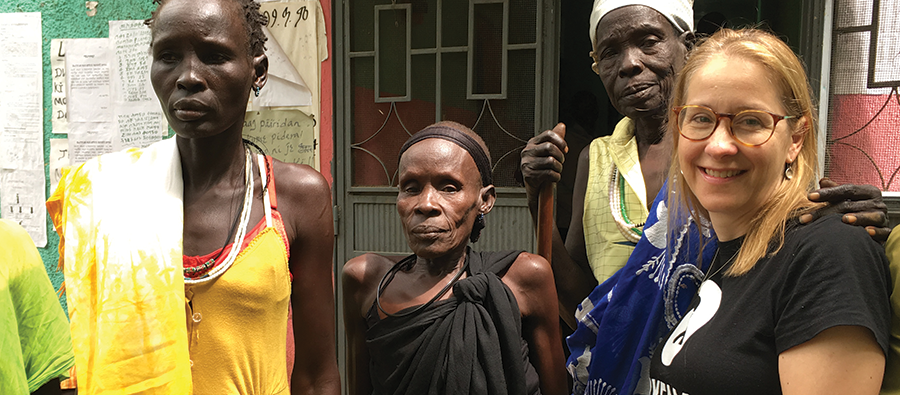What Does Safeguarding Mean For Oxfam?
Safeguarding is a series of policies, processes and practices focused on the prevention of sexual harassment, exploitation and abuse.
It is vital that everyone who works for Oxfam maintains the highest standards of conduct, integrity and ethics, and complies with local legislation. We have a zero tolerance approach to inaction on sexual harassment, exploitation and abuse in our organization. This means that we will do everything in our power to prevent these abuses from happening in the first place, and rigorously address it when it does.
One of our most important pillars of safeguarding is our Code of Conduct, which is an agreement that all Oxfam employees must sign and abide by, regardless of location. This code of conduct guides our staff in carrying out their duties and regulating their conduct according to Oxfam values.
If you are aware of instances of Oxfam staff not abiding by our codes of conduct or policies, we encourage you to report misconduct here.
How We're Keeping People Safe
Across Oxfam, we have tripled our investment in safeguarding since 2019, created a global Director of Safeguarding role that reports directly to the International Chief Operating Officer and have rolled out a mandatory safeguarding awareness course for 10,000 Oxfam employees worldwide.
And we won't stop there.
Abuse – in all its forms – has no place in what we do, and we will work hard to make our organization safe and secure for everyone. Our work on safeguarding has several elements:
- Prevention: This includes the establishment of clear policies and procedures, training, and sharing of information to prevent risk of harm and abuse. Our Safe Programming approach includes specialized training and toolkits for staff and partners. We regularly evaluate staff capacity to perform our work in line with our policies and procedures.
- Support and Care: This means providing resources to support and care for those who have experienced sexual harassment, abuse and/or violence in line with our survivor centered approach. It also includes ensuring that staff have access to specialized training.
- Response: This includes strengthening and harmonizing current policies and procedures, and ensuring that these are clear and accessible to all. Our confidential reporting mechanisms aim to cultivate an environment where issues are raised and people are held accountable.
- Improving Our Culture And Living Our Values: This is our ongoing work to ensure that Oxfam's Values and Feminist Principles are understood and lived by staff and partners. Improving our culture can help shape attitudes and behaviours and change power structures to prevent the abuse of power which is often at the heart of sexual exploitation and abuse cases.
These are the building blocks of safeguarding at Oxfam:
- A safeguarding plan is established
- Trained safeguarding focal points are present in all Oxfam offices
- The Oxfam code of conduct is signed by all employees and related personnel
- Safe recruitment and screening processes are in place
- Regular and appropriate safeguarding training provided to all employees and related personnel
- Safeguarding reporting and responding procedures are in place in all offices
- Community based feedback and complaint mechanisms are established
- Partners adhere to One Oxfam Safeguarding Policies and Core Standards
- Safeguarding risk assessment and management practices are established
- Procedures for handling images and personal information are established
Survivor-Centered Approach
Ensuring survivors can report abuse in confidence – and that they get the support they need – is paramount. We want survivors, past and present, to continue to come forward and report allegations and we know this can be painful and traumatic. We’ve endeavoured to make the process more accessible and to be survivor-centred in our approach and will continue to seek improvements.
We have worked to demystify the reporting process and build trust. We seek to protect the confidentiality and safety of survivors and whistle-blowers as well as providing medical, health, social, emotional and other forms of support for survivors.
Working Together To Strengthen Safeguarding
Because we also believe in lifting up the humanitarian sector’s work in this area, Oxfam Canada has signed onto the Cooperation Canada Leaders’ Pledge on Preventing and Addressing Sexual Misconduct and sits on the advisory committee for Digna: The Canadian Centre of Expertise on the Prevention of Sexual Exploitation and Abuse, whose mission is to help Canadian international development and humanitarian organizations improve their ability to prevent the sexual exploitation and abuse of program and project participants – particularly women and girls.
- Oxfam Safeguarding Core Standards
- Oxfam Employee Code of Conduct - 2020
- Oxfam Board Code of Conduct - 2020
- Oxfam Partner Organization Code of Conduct - 2019
- Oxfam Prevention of Sexual Exploitation and Abuse Policy
- Oxfam Digital Safeguarding
- Oxfam Child Safeguarding Policy
- Oxfam Youth Safeguarding Policy
- Oxfam Whistleblower Protection Policy
Our Progress
Since 2019, Oxfam has taken major steps towards aligning our approach to safeguarding across the confederation. We have in place an Improving Safeguarding and Culture Plan that serves as a framework to drive our work. We publish bi-annual updates that outline what we have done so far and what we have planned for the coming year.
What Safeguarding Looks Like In Practice
Training During The Indonesia Tsunami And Earthquake
One of our Oxfam safeguarding leads, Cahyanti, ran safeguarding training for our local partner organization, staff and volunteers delivering vital aid in Indonesia. During emergencies, such as the disaster that hit Sulawesi in late 2018, we work collaboratively with local people and organizations to respond to the community. It's vital that everyone involved is equipped to help keep people safe at such a critical time.
Preventing Exploitation Of The Most Vulnerable
Nosiba Ahmed works for Oxfam as a Cultural Mediator in Italy. She reaches out to the most vulnerable migrants, helping to protect them from trafficking and violations of their right to seek asylum. Having come from Sudan as a migrant herself, she really cares about building trust with people in the same situation. "Sometimes we meet people and they are hopeless... We can tell them, 'actually, there is something you can do. You have rights.'"
Breaking Down The Barriers Women And Girls Face
Grace's two-hour walk to school in rural Malawi was unsafe, she was often late and her work suffered. She used to worry about her journey. But everything changed when she got a bike from Oxfam. These days, it's easier – and safer – for Grace to get the education she needs to overcome poverty.
Fraud and corruption as forms of misconduct
Oxfam does not tolerate fraud and corruption and is committed to ensure that its systems, procedures and practices reduce the risk of occurrences to an absolute minimum.
We commit to the use of a holistic anti-fraud and corruption framework that is supported and embedded at every level, from projects, countries, regions and affiliates. This is in line with our Code of Conduct and our values as an organization and follows both our Anti-Fraud and Corruption Policy and our Terrorism Financing and Financial Crime Policy. Note: all of our policies, reports and publications are available in accessible formats upon request. Please contact to make a request.
If you suspect misconduct has, or is about to occur, we encourage you to communicate your suspicions without fear of reprisal. Safeguarding concerns and fraud/corruption related misconduct can be reported here.
Warnings on scams that use Oxfam's name
At Oxfam, we feel it's important that we actively protect the people who support and believe in our work by sharing information on potential financial exploitation that leverages our name.
Oxfam has received several reports of scammers trying to fraudulently use its name. These fraudulent correspondences often carry Oxfam’s name and logo and appear to be authorized communications from Oxfam. In light of these incidents, Oxfam would like to encourage all concerned to exercise particular vigilance when interacting with third parties over email, internet, phone or text.
Fraudulent third parties representing themselves as Oxfam may attempt to gain your personal or financial information or exploit you for financial gain. Examples include:
Lottery prize: Email, SMS, WhatsApp or Messenger messages claiming that the recipient has won the lottery. Recipients are asked to provide personal contact details or make a payment to claim the prize.
Job offer: An advertisement is placed on a website supposedly to recruit for Oxfam. Respondents are asked to pay a fee (e.g. for a uniform or background checks or insurance) before receiving a job offer.
These are scams or phishing attempts. They are not genuine. Oxfam does not send unsolicited messages or make phone calls that claim the recipient has won a prize. Oxfam also does not ask any potential employees to pay a fee before being offered a job. We strongly advise members of the public to ignore any such communications.
We will take all appropriate legal recourse against such fraudulent and unscrupulous scams, but Oxfam and members of its confederation, shall not in any way whatsoever be responsible or liable for any loss that may be occasioned to any member of the public on account of their dealings with fraudsters.


